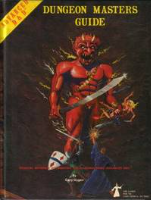
Work with the Group / Everyone is Equal The Dungeon Master (DM) is the only person who has the ability to really moderate the ebb and flow of the game. No matter how good you believe your idea may be, your role as a player is equal with every other player (regardless of character rank). A good D&D character group generally has a tank, magic user, rogue, healer, and a wild card. Often, that wild card will be a charismatic class such as a bard. In these cases, the bard’s natural charisma might grant them a bit more pull in conversation than others. Would it really make sense if your cleric stepped up and grabbed the spotlight at every turn? Likewise, sometimes sacrificing what you (the player) would rather do for the good of the team works out for everyone’s benefit. No one likes a spoilsport, and the purpose of the game is to encourage teamwork and problem solving. Your Character Isn’t Always the Center of Attention The goal of any good DM should be to make sure that each player receives an equal amount of attention and opportunity to impact the outcome of the story. If the majority of your team wishes to follow a certain path or one of their characters becomes the highlight of a particular encounter, then it’s your role to play your character as it would be played but to also respect that invisible boundary that allows that individual to play out their moment without stepping in and proclaiming your dominance. Try Something New I’ve played with a few folks who roll the same character over and over again. Some folks have a natural affinity towards gnomes, but when every character played by that person has the same personality and basic stats, it gets rather old. Try something new. Expand your horizons and work with characters outside of your preferred class/race once in a while. In an exceptionally long campaign, don’t be afraid to allow your character to die midway through. Rolling a new character keeps the game fresh for you and your companions. Play Your Character, Not Yourself Personal issues can work their way into a game faster than anything else. I had to learn this lesson the hard way. When you’re making decisions or speaking as your character, do what you believe they would do in a situation. Not everyone’s half-orc warrior has an IQ of 125. That leads me to the second sub-point in this particular rule: Work with (not against) your character’s faults. If your character doesn’t have some outstanding flaw or fault with them, then you might as well be playing a god. Let your character have a phobia it can’t overcome without magical assistance, give it an ugly scar, or at the very least play out its weakest stats the way you’d expect them to be played by the DM. If your character is an idiot, then play it like an idiot. Don’t go overboard to the point where your companions stop having fun, though. Dungeons & Dragons Player Etiquette by Ryan Matthew Pierson

